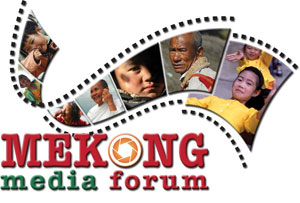By Stanislaus Jude Chan
CHIANG MAI, Thailand, Dec 12 – “It’s not a matter of ethics, this is survival!” a Laos-based journalist in the audience raved, as he disclosed details of instances where he – and others he knew – had received monetary reward from businesses for writing stories that presented these companies in positive light.
The issue of ethical reporting took centre stage at the ‘Learning and Relearning Journalism’ Talk show session held on Dec. 11, as panellists and participants at the Mekong Media Forum discussed how different histories, political systems and societies have shaped different education systems when it comes to media and journalism in the Mekong region.
The four-day forum, which brought together some 200 participants from across the six-country region, ended Saturday in this northern Thai city.
While formal journalism education is useful as a starting point, panellists agreed that it was not essential.
Jeff Hodson, a journalist and regional media trainer, said it “will have to be incorporated in any form of journalism training programme. How can you report the news fairly and without bias unless you do have ethics?”
But other speakers disagreed. “If ethics is something that you only start learning about in journalism school, and only there, then I would say it’s too late and too isolated,” said Daniel Hirschler, project manager and country coordinator in Laos for DW-AKADEMIE, German broadcaster Deutsche Welle’s training institute.
“Ethics, you learned when you were a child. You don’t take money from people if you don’t deserve that. You don’t learn this at school, and you don’t learn this in the newsroom also,” said Nguyen Ngoc Tran, a journalism professor at the University of Social Sciences and Humanities in Ho Chi Minh City.
But Hirschler argues that the ethical dilemma in reporting is not unique to the Mekong region: journalists in developed countries in the West face the same issues. He related an incident where a Swedish journalist exposed a fundamental mechanical flaw while test-driving a new Mercedes Benz motorcar, which the company had tried to cover up.
“The reason why this came out quite late is most of the motor journalists in Europe are usually sent to Arizona with a detour to the Las Vegas casinos to test those cars, with I don’t know what (other incentives),” he said.
“The motor journal that this journalist was working for in Sweden had a clear code of conduct, a clear policy on this. If you don’t have this policy in the university where you study, or the radio station you work for, or in the country you live in, then it would be difficult to establish strong ethics in journalism.”
On top of ethical concerns, the session also surfaced issues surrounding the inadequacy of journalism education – even at top academic institutions around the region – in dealing with real world challenges.
Hodson voiced a worrying trend where fresh journalism graduates were well-versed in the basics of journalism such as proper fact gathering and balance reporting, but were not practising it in the newsroom. “There’s a quota system that motivates reporters to fill their five stories for the week, so why get three sources if they can just get one and meet their quota?” said Hodson.
It is also important, Hodson said, to try to teach journalists that they “own the story” and can “create and shape the news as well instead of just always reacting to it”.
But panellists agreed that the socio-political situation on the ground in many of the countries in the Mekong region makes real-life newsroom experience and on-the-job training more relevant than academic training. Hirschler, for example, said “critical thinking” is more important than “any kind of curriculum that you can have or have not in any communications or mass media department”.
Vannaphone Sitthirath, coordinator of the Mekong Media Forum and a journalist from Laos, lamented the state of the media environment in Laos. ”That’s why I quit,” she said.
She attributed the situation in part to “economic pressure,” saying Lao journalists earn less than 100 U.S. dollars a month. “It’s sad that Lao journalists take money from organisations that invite us to do stories. It’s really sad. But how can I blame them?”
She confessed she had tried to quit her profession. “I asked myself, ‘Am I going to work as a journalist in Laos?’ It’s sad. So I gave up many times,” she said. But she kept coming back, she added, to rousing applause from the audience.
Vannaphone expressed hope the journalism course at the National University of Laos would bring much-needed changes to media ethics in her country while echoing in the same breath the opinions of the panellists at this session. “I don’t believe it will train you 100 percent to be a good journalist … I think a good journalist is in here,” she said, her hand gesturing toward her heart.







